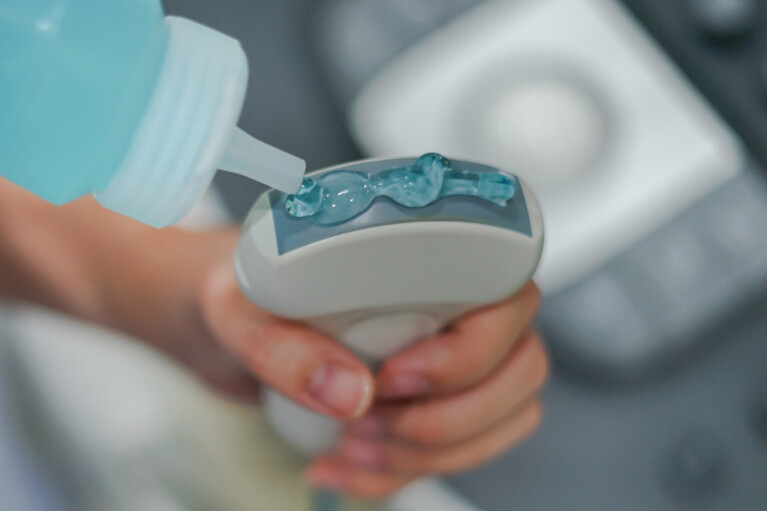Lawmakers Hammer Hogan Administration Over COVID-19 Procurement

Lawmakers sharply criticized two Hogan administration procurement officials Wednesday for the acquisition of incomplete COVID-19 tests kits from South Korea.
They also faced intense scrutiny over the state’s decision to purchase ventilators and masks from a newly-formed firm with strong ties to Republicans in Washington, D.C., but scant experience in procuring medical equipment.
The state has sought to cancel that deal after equipment was slow to arrive and questions about the company, Blue Flame Medical, were raised in the media.
Although he praised the Department of General Services for doing “great work” in locating “life-saving equipment for the people of Maryland” in the early weeks of the crisis, Sen. Paul G. Pinsky (D-Prince George’s) called the test kit deal and the contract with Blue Flame “disasters.”
The chairman of the Education, Health and Environmental Affairs Committee, Pinsky said the top officials in the agency were “complicit” in the “mistakes” the state has made.
The occasionally tense committee hearing, held via Zoom, represented the General Assembly’s most robust and critical oversight of the Hogan administration’s handling of the coronavirus crisis.
With state Health Department officials having canceled a scheduled appearance with the legislature’s COVID-19 Workgroup on Wednesday morning, it fell largely to DGS Secretary Ellington E. Churchill Jr. to defend the administration’s purchases during the Senate hearing in the afternoon.
Several lawmakers asked why the state purchased test kits from South Korea that lacked important components.
Sen. Clarence K. Lam (D-Howard), a physician, displayed a list of test kit materials that the company, LabGenomics, notes on its website are “required but not provided.”
“If there’s ever a matter of life and death, having complete test kits would be it,” Pinsky said. “It gave publicity to the governor without helping the lives of Marylanders, and you were complicit in that.”
Hogan announced with great flourish on April 20 that, aided by his wife Yumi, the state had acquired 5,000 LabGenomics test kits from her native South Korea, giving the state the potential capacity to screen 500,000 people for COVID-19 infection.
He called the purchase “an exponential, game-changing step forward on our large-scale testing initiative” and his office distributed photos of the Hogans on social media, showing them on the tarmac at Thurgood Marshall BWI Airport greeting a jumbo jet from Asia.
The news garnered Hogan national attention. President Trump took notice as well.
Since the high-profile buy, dubbed “Operation Enduring Friendship” by the administration, there have been lingering questions about how many of the test kits remain incomplete and how many have been distributed. Health Department officials have repeatedly declined to publicly brief legislative leaders or answer questions from the media.
“If it was announced that we bought these tests and in fact they weren’t complete tests, we not only deceived Marylanders, we deceived the nation,” Pinsky said.
Churchill and DGS’s chief procurement officer, Robert Gleason, testified at length about the challenges they faced attempting to purchase items that were in high demand and short supply the world over.
“In 25 years of public procurement, I’ve never seen anything like this,” Gleason said. “It’s been an extreme challenge.”
But when pressed on the test kits, he and the secretary repeatedly referred lawmakers to the state’s top health officials.
“For any procurement process, you have to have a subject-matter expert,” Churchill said. “The subject-matter expert for tests was the Maryland Department of Health. Yes, we did assist, but the evaluation of the product was a part of the process for the Maryland Department of Health.”
Pinsky accused Churchill of “abdicating responsibility.”
‘No track record’
The committee also pressed Churchill and Gleason on the decision to award a $12.5 million contract for ventilators and masks to Blue Flame, a company formed in late March by two GOP fundraisers.
Maryland signed its contract with the Delaware-based firm just days after it incorporated.
Procurement officials insisted they were diligent in assessing Blue Flame’s ability to deliver, but lawmakers expressed skepticism.
“They had only been incorporated for six days and had no track record. What kind of vetting process did you put them through?” asked Pinsky. “They didn’t deliver, which proved the point that they were not vetted appropriately.”
Gleason said the referral to Blue Flame “came through another member of the governor’s team,” though neither he nor Churchill would identify the person, despite repeated attempts from lawmakers. Whispered conversations could be heard during gaps in the back and forth.
The DGS officials denied that there was any attempt to sway them into contracting with the firm.
“No conversations were held with that person,” said Gleason. “No conversations were held with the governor’s team specifically concerning getting a contract to Blue Flame Medical based on any relationship. We were not looking at relationships.”
“We stayed within the guardrails of our procurement methodology,” he added. “It was deemed that the products that they were providing were acceptable for use in Maryland and we went forward with our purchase order.”
Lam said that if the state had “Googled” Blue Flame they would have found an article from Politico about the firm’s newcomer status.
Company founder Mike Gula, a GOP fundraiser, told Politico he was able to find difficult-to-procure masks and ventilators because he and cofounder John Thomas, a political consultant, have “relationships with a lot of people.”
The firm’s website boasts of “a wide selection” of personal protective equipment and other “hard to find medical supplies to beat the outbreak.”
The company, which is represented by former state attorney general Douglas F. Gansler (D), is urging the state to revoke its move to cancel the contract, claiming that some items have been delivered.
The governor’s spokesman, Michael Ricci, declined to identify the member of Hogan’s team who referred DGS to Blue Flame.
Though he defended the deal, Gleason said the increase in the supply of ventilators and masks around the world is giving the agency the opportunity “to readjust ourselves, to do things maybe with greater rigor or some degree or a greater degree of oversight.”
The Department of Health declined to comment on Wednesday.
Speaking to reporters late Wednesday afternoon, Hogan announced more new testing sites, bringing the state’s total to 11, and he said Maryland has reached its goal of testing 10,000 people a day –– and had tested more than 300,000 since the COVID-19 crisis hit.
Hogan also detailed the elaborate steps the state has had to take to fill gaps in private lab and federal lab capacity and to make the South Korean kits operational. He disclosed that the University of Maryland will soon be processing tests at a new facility.
Hogan appeared irritated when a reporter asked, “When are we going to see the tests?”
“You won’t actually see them because they’ll be in the lab,” he said.




 Creative Commons Attribution
Creative Commons Attribution